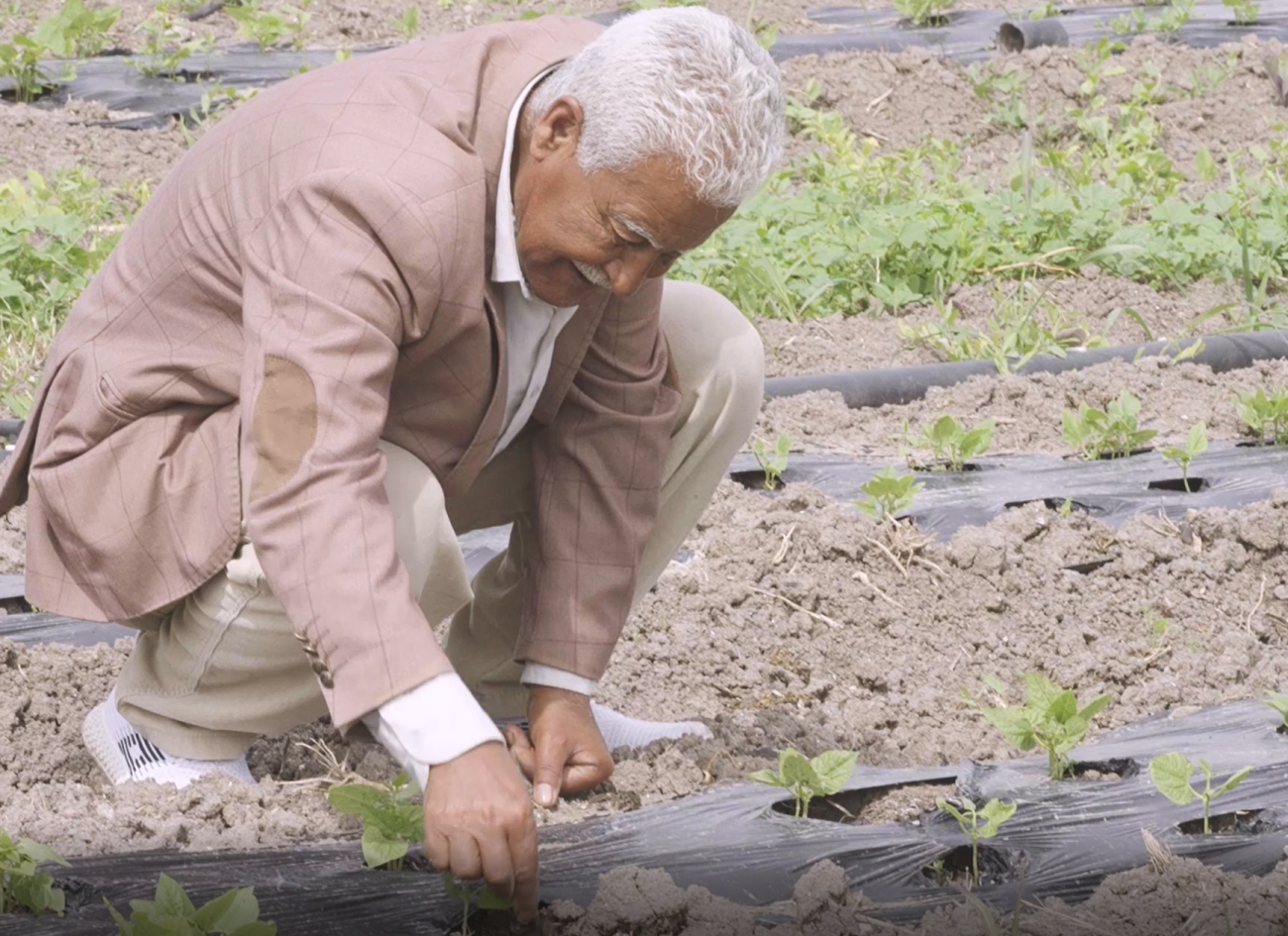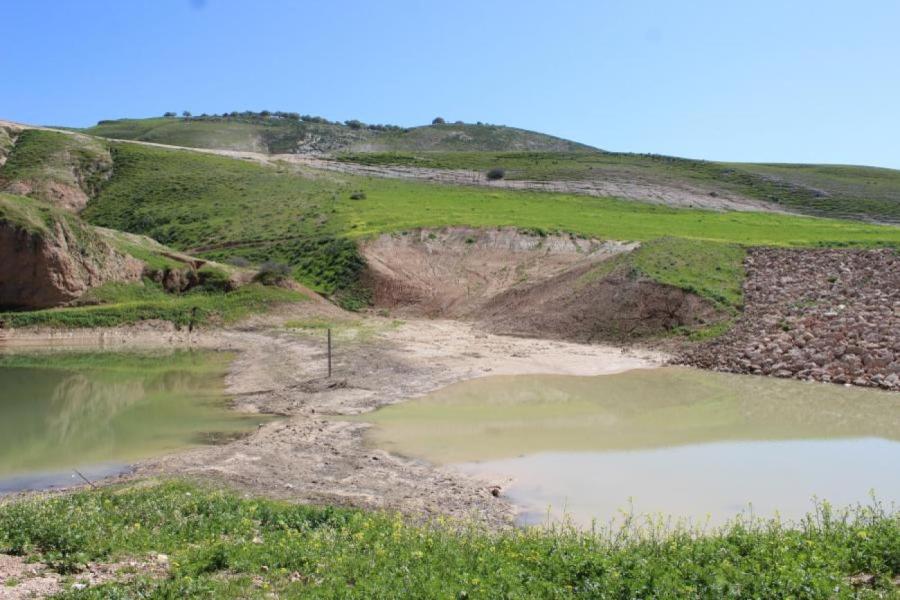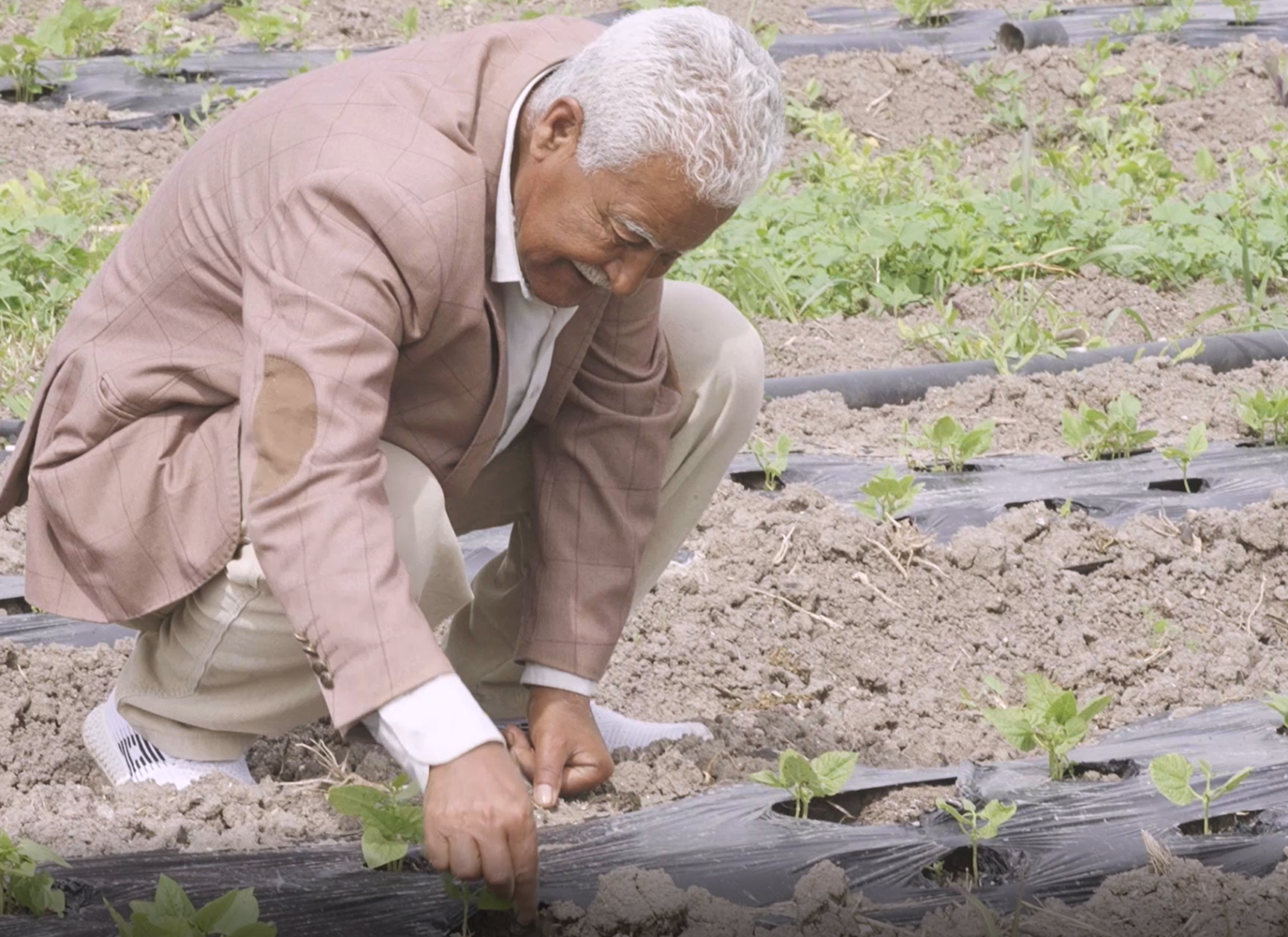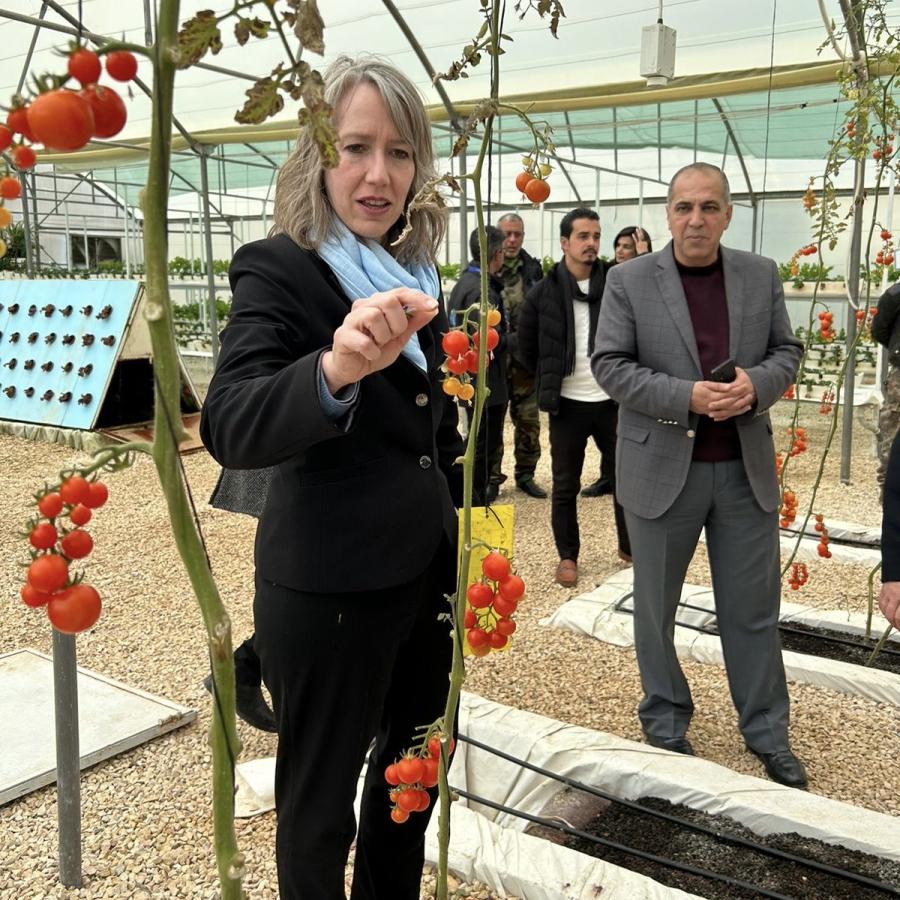Jordan’s farmers respond to water scarcity woes with innovation

Jordan is one of the world’s most water-scarce countries, with as little as 61 m3 of water available per person every year.
JORDAN (Northern Shouneh)— For Hosni Al-Rayahnah, a 63-year-old farmer in Northern Shouneh, Jordan, climate change and water scarcity is an everyday reality.
“Things have changed over the past few years, as the climate has become hotter with less rain, which affected the quality and quantity of my crops,” says Al-Rayahnah, who started farming 20 years ago.

“For me and other farmers, we struggled to afford enough water to weather the impact of heat waves on our crops. Water pumping has been reduced to our farms due to the limited water supply. Some of us were about to quit the profession,” he explains.
Jordan is one of the world’s most water-scarce countries, with as little as 61 m3 of water available per person every year. In addition, limited water resources are fueling competition between the agriculture, domestic and industrial sectors. The agricultural sector, which consumes 51% of the country’s freshwater resources, is especially vulnerable to climate change and water scarcity.
Population growth affected by waves of refugees, economic and agricultural demands, and the adverse impacts of climate change have further compounded the water scarcity challenge.
Economically vulnerable communities like Al-Rayahnah’s, particularly those in rural areas, are among those most heavily impacted by the decreasing water resources.

Seeds of change
The UN is enhancing its collaboration with the Government and people of Jordan to address the growing issue of water scarcity and advance progress on Sustainable Development Goal 6 on clean water and sanitation.
The Kingdom of Jordan has recently launched a new water strategy for the years 2023-2040, which outlines the government’s goals and plans to achieve water security.
Lowering reliance on freshwater by increasing use of reclaimed water for irrigated agriculture, more efficient irrigation systems, and expanded rainfed agriculture and rainwater harvesting are one of the key priorities included in this strategy.
“The UN is proud to partner with the Kingdom of Jordan as it addresses these unprecedented water challenges,” said Sheri Ritsema-Anderson, the UN Resident Coordinator in Jordan in a visit to Northern Shouneh.
“The UN is supporting national and local government to better respond to climate change impacts and vulnerabilities,” she added. “This includes technical support to concerned authorities, public awareness, and implementation of projects on the community level, such as rooftops rainwater harvesting, use of water saving domestic devices, use of reclaimed water and water networks rehabilitation.”

Bringing innovation to irrigation
Hope has come in the form of new knowledge with the farmers learning new irrigation methods which have helped expand production, grow new varieties of fruits and vegetables, and use water efficiently.
Al-Rayahnah and other farmers in the Northern Shouneh, joined the Farmers Field Schools (FFS) supported by the Food and Agriculture Organization of the United Nations (FAO), an initiative that has been running since 2018 in Jordan.
The main goal of the schools is to improve farmers’ skills and facilitate the adaptation of best farming practices for more sustainable water and food management.
So far, more than 1,500 farmers joined these schools.
“The primary goal of these schools was to help save water for irrigation. After implementing water efficiency methods including drip irrigation I increased the size of my farm as I started using almost the same quantity of water to water more crops and plant more varieties,” said Al-Rayahnah.
These schools are among several projects and initiatives that FAO is implementing to improve sustainable agricultural water management and increase water efficiency for irrigation. Water harvesting is another technique that farmers in Northern Shouneh are being supported with, thanks to a collaboration between FAO and Jordan’s Ministry of Water and Irrigation.
“In the context of water shortage and as the agricultural sector consumes about half of the country’s total available water, adopting good agricultural and irrigation practices that improve water efficiency and water productivity is necessary for sustainable water management and for a better production.” said Nabil Assaf, FAO Representative in Jordan.
“Climate smart agricultural systems, farmers’ capacity building on best practices and rainwater harvesting are part of what we are implementing to increase water availability through non-conventional resources and enhance water use efficiency for agriculture. This will lead to better production, better nutrition and better environment for a better life, leaving no one behind,” Assaf added.
Shifting agriculture for water use
The shift in water use and efficiency is driving new innovations across sectors that can help deliver impact. FAO is also providing assistance to Jordan to expand hydroponic and aquaponic farming, which provide another opportunity for the water-scarce country’s agriculture sector to produce more crops, while using less water.
In cooperation with the Ministry of Agriculture, FAO established a nursery in the North of Jordan to implement this method and so far, 1,500 farmers and students have learned the techniques of hydroponics and aquaponics farming, according to Bahjat Sawalmah, head of the AlFaisal Nursery.
Sawalmah said that these new techniques save up to 80% of water usage, compared to the traditional techniques. “In addition, it ensures the continuity of having high-quality products like strawberries, tomatoes, cucumbers and leafy vegetables throughout the year”.
In addition to aquaponics, nearly 400 public buildings and 7,850 households will be fitted with the roof top water harvesting structures, with the support of FAO and partners.
This is helping build climate resilience at the household level with improved access to water and efficient water use as well as in selected public buildings such as schools, mosques, municipalities with the help of water harvesting at the local community level.
For farmers in Northern Shouneh, these are steps on a long journey ahead, reshaping the future of farming and food security in Jordan.
“More collective action is needed to address these long-standing impacts of climate change and ensure sustainability of agriculture. We need maintain this industry but we need to change and adapt. This is fundamental to ensure food security for the future generations”, Al-Rayahnah concluded.
This article was written by the UN Resident Coordinator’s Office in Jordan with editorial support from UN DCO.



